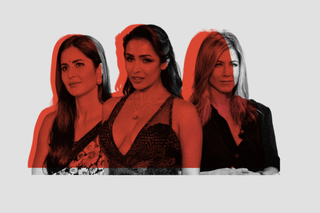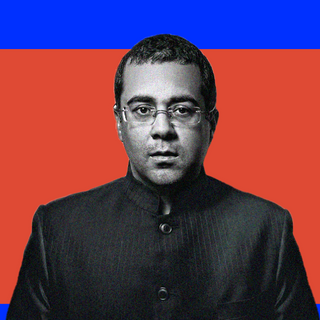
Pregnancy Speculations by Tabloids Aren’t Just Insensitive, They’re Also Sexist
Pregnancy speculations, in the age of information, have emerged as yet another tool to police women’s bodies.

This week, Pinkvilla — a gossip and entertainment news portal — published an article speculating that actor Malaika Arora is pregnant. Immediately, other news networks, too, began amplifying the scoop — lending greater credence to it with each new report. However, the unverified piece of news was posted without Arora’s consent, and soon drew the ire of both Arora and her partner, Arjun Kapoor. “This is the lowest that you could have gone, and you have done it by being casual, insensitive, and absolutely unethical in carrying garbage news,” Kapoor stated. Sharing his remarks on her social media, Arora added that Pinkvilla’s stunt, here, was “f***ing disgusting.”
The original report by Pinkvilla, which appears to have been taken down now, reflects the trend of unhealthy voyeurism tabloids fuel by tirelessly speculating about celeb pregnancies — often, simply through scrutinizing the bellies of female celebrities during their public outings. It’s a global phenomenon, and publications like Us Weekly and Perez Hilton in the U.S., actually have entire sections on their websites that are dedicated to “baby bump watch.”
As Kapoor noted, such conjectures are undoubtedly insensitive for a plethora of reasons. Jennifer Aniston’s tryst with the speculations reveals one aspect of the apathy behind bump watches, and its consequences on the people under such scrutiny. “All the years and years and years of speculation… It was really hard. I was going through IVF, drinking Chinese teas, you name it. I was throwing everything at it,” Aniston told Allure just this year, explaining how the regular audits of her body by the media took a toll on her mental health. At a point when she was already struggling to conceive, the deluge of speculations served as incessant reminders of those very private struggles.
Pregnancy speculations, then, in the age of information, have emerged as yet another tool to police women’s bodies.
Chrissie Teigen, an American television personality, too, had a similar experience. In February this year, while she was undergoing an IVF cycle and experiencing bloating, as a result, she begged her fans and followers to stop indulging in assumptions about her reproductive pursuits, writing, “…while I know it’s said with excited, good intentions, it just kind of sucks to hear because I am the opposite of pregnant!”
Related on The Swaddle:
Why People Are Obsessed With Babies of Celebrities
Moreover, pregnancy speculations also expose celebrities to the risk of physical danger — irrespective of whether or not they’re indeed pregnant. As Kim Kardashian had recounted once, in defense of Kylie Jenner’s decision to keep the news of her pregnancy under wraps, “There were times when we would be driving and pregnant, and paparazzi would almost crash into our cars because they just wanted a picture. Kylie really wanted to, I think, protect her safety, the baby, and have that just be a private moment.”
But insensitivity isn’t the only issue with bump watches. The whole phenomenon drips with patriarchal notions — primarily the one that perceives women’s bodies as means for either sexual gratification or procreation. In other words, speculations directed at the wombs of celebrities aren’t just an abject violation of their subjects’ privacy, but also serve as conduits of sexism.
The fact that they fail to account for the choice of the woman in question — like whether she intends to ever have children of her own, and if so, whether a pregnancy is indeed her route of choice, if she’s even trying to conceive at that moment in time, or if she is comfortable with broadcasting her reproductive decisions — bolsters the sexism. Because, after all, patriarchy doesn’t deem women worthy of free will. Aniston’s words, “We are complete with or without a mate, with or without a child. We get to decide for ourselves what is beautiful when it comes to our bodies,” appear to be lost on a largely patriarchal society.
Among the myriad of issues plaguing pregnancy speculations is also the concern that they inch dangerously close to body shaming. As Aniston had written in an editorial for The Huffington Post in 2016, “For the record, I am not pregnant. What I am is fed up. I’m fed up with the sport-like scrutiny and body shaming that occurs daily under the guise of ‘journalism,’ the ‘First Amendment,’ and ‘celebrity news.'”
Meghan Markle was also subjected to similar scrutiny by the media even right after giving birth. The reports oscillated between questioning why Markle hadn’t lost her baby weight yet, and hazarding guesses that she must be pregnant yet again — because, again, patriarchy refuses to acknowledge that women of childbearing age must either seduce or reproduce.
Related on The Swaddle:
Our Obsession With Every Cannes Look Reveals Our Need for Validation From the West
Indian celebrities besides Arora, too, have been the subject of bump watches. Just this year, Katrina Kaif and Kareena Kapoor Khan — both leading Bollywood actors — were both the subject of pregnancy speculations. The surveillance of Kaif’s private affairs was rooted primarily in sexism — given that it’s now been close to a year since her wedding, it’s as though people were expecting babymaking to assume priority in her life while her career takes a backseat.
Speculations regarding Kapoor Khan’s pregnancy, though, appeared to be rooted in body shaming, too, rather than sexism alone. After a vacation picture of hers, where her belly appeared bloated, surfaced online, the rumor mills began churning aggressively until the actor clarified, “It’s pasta and wine, guys… Calm down… I am not pregnant.”
This year, the media had surmised Hailey Beiber, too, is pregnant because her belly appeared mildly larger than usual. As it turned out, though, she was dealing with an ovarian cyst “the size of an apple,” in her own words. “It’s painful and ache-y and makes me feel nauseous and bloated and crampy and emotional,” she added. While Bieber didn’t, perhaps, mind disclosing information about her health on social media, it’s not far-fetched to imagine that someone else in her position might have. As such, forcing one to divulge their personal — and, on occasion, painful — information, simply to quell speculations that shouldn’t have existed, in the first place, seems rather cruel.
This trend of scrutinizing every public appearance of female celebrities also fuels an unhealthy obsession to constantly look “perfect” — especially when the focus of the audit is their bellies. What makes this particularly insensitive is the sheer prevalence of negative body image among celebrities, which results in years’ long, if not decades’ long, eating disorders. The fact that bump watches often bring the tiniest of weight gains by celebrities under scrutiny — including a single evening of indulging in pasta and wine —has the potential to exacerbate their body image issues, making the trend even more inhuman.
What makes it even worse is that, as research shows, a significant number of women struggle with their body image while pregnant. So, if the scoop on a celebrity being pregnant is indeed everaccurate, it’s possibly among the worst of moments for the media to overtly focus on their bodies. Is being right, then, indeed worth potentially pushing another human being down a mental health spiral?
Devrupa Rakshit is an Associate Editor at The Swaddle. She is a lawyer by education, a poet by accident, a painter by shaukh, and autistic by birth. You can find her on Instagram @devruparakshit.
Related


Chetan Bhagat’s Remarks Promote Rape Culture and Sexual Repression in the Same Breath
